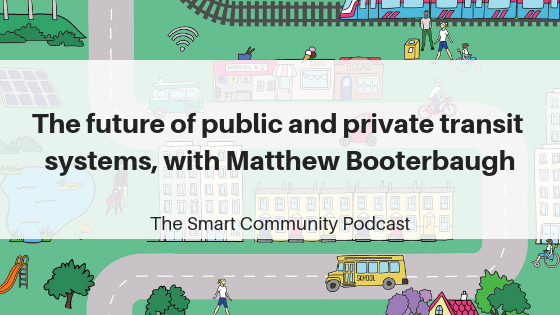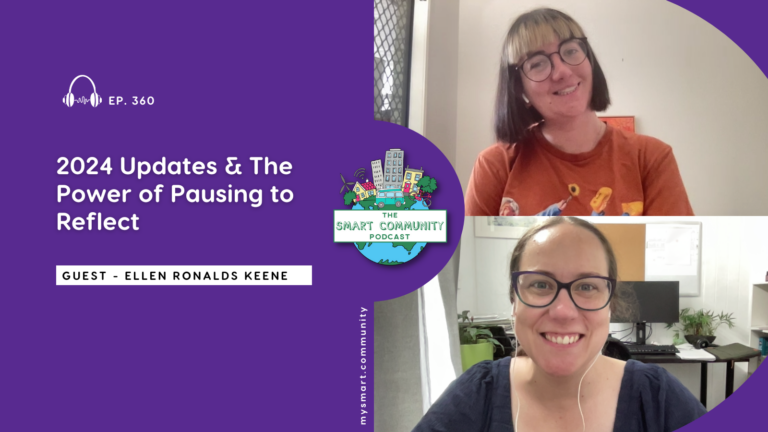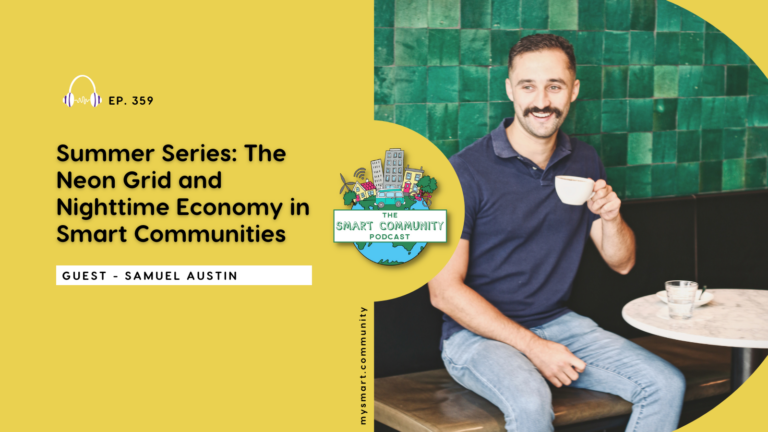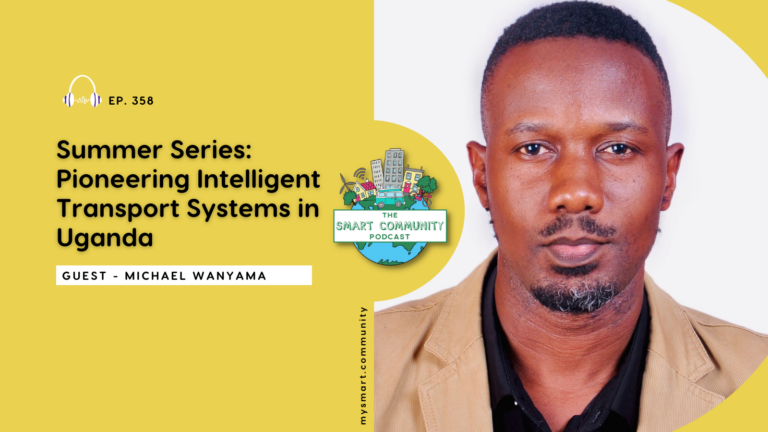In this episode of the Smart Community podcast, I had a really great chat with Matthew Booterbaugh, the Vice President of Continuous Improvement at RATP Dev North America. We discuss Matthew’s background in IT, his interest in helping organisations build efficiencies in their processes, and how that has led him to the public transit industry. Matthew tells us what RATP Dev does, some of the projects he’s been working on in Europe and Asia, and what we can learn from those projects, including the electrification of bus fleets in France. We talk about why Smart Cities and in particular Smart Mobility is so important, as well as how Matthew sees the US embracing Smart Concepts. We cover the cost effectiveness of on-demand transit services compared with traditional services, and some ways to better integrate between the public and private sectors in the transit industry. Matthew also tells us about a project involving social media and news listening platforms being used to collect real-time customer service and operational data for transit companies, as well as what RATP Dev USA has planned for the future. We finish our chat discussing the emerging trend of consolidating trip planning and payment system applications between private and public transit options. As always, I hope you enjoy listening to this episode as much as I enjoyed making it.
Listen Here:
What we cover in this episode:
- Matthew’s background in the IT space and how he’s moved into the public transit industry
- What RATP Dev does and what that means for listeners
- What sparked his interest in the Smart City space and why it’s so important
- What a Smart City is and how the US is embracing Smart concepts
- How we can learn from projects Matthew is working on in Europe and Asia
- Electrification of bus services and autonomous shuttle testing in Europe
- The key emerging trend of on-demand, micro transit services, and their cost effectiveness compared to traditional services
- Social media and news listening platforms used for real-time data to get feedback and identify operational issues
- RATP Dev’s technology and innovation platform, Orbyt
- Some ways to better integrate between the public and private sectors in the transit industry
- What RATP Dev USA has planned for the future
- The consolidation of trip planning and payment system applications between private and public transit options
Quotes:
“I’ve always been a person that’s been intrigued by industries that are in the midst of change and disruption. That’s when I really got hooked on the idea of being part of this transformation that’s beginning to take shape related to mobility in our cities.”
“Smart City for me is really about challenging the status quo in mobility options. Gone are the days where it makes sense to just simply run a 40 ft bus anywhere and everywhere in the city and also gone are the days where there are very distinct silos that exist between bus operations and taxi companies and private shuttle companies. It’s really becoming about the first and last mile, how all those modes of transportation both public and private can work together for the best rider experience. And to me, that is a big piece of smart cities and being part of that is exciting.”
“A Smart City is one that is really focused on doing things better each and every day in terms of developing a strong, continuous improvement culture for both residents as well as companies that reside within the city…And really taking a look at, not only what our needs are today, but projecting out what the needs are going to be of residents and companies well into the future.”
“The [Smart City] concept itself drives competition within cities to do things differently, to really challenge the status quo and if we’re not doing that in our cities, then I think we kind of become complacent in many ways. And we want to be a culture built on evolution, not complacency.”
“Around the entire world, one of the concepts that is really taking root is on-demand services…it’s really about the idea of delivering more transportation options to the widest geographical coverage area, at the most cost effective price, so, not just thinking about a fixed bus route but really thinking about also that first and last mile and deploying on demand services that are little bit more Uber-esque or Lift-like in order to help our customers meet that first and last mile demand.”
“The private sector typically makes faster decisions [and] many times are able to execute plans faster than the public sector, that gets slowed down around procurement processes, meeting to align larger number of stakeholder groups on changes that affect various people in the transit agency…We need to find ways to kind of break down some of the legacy public processes that are in place to be more relevant to our current day needs.”
Connect:
Connect with Matthew on LinkedIn and via email:
matthew.booterbaugh@ratpdev.com
Connect with me via email: hello@mysmart.community
Connect with My Smart Community via LinkedIn or Twitter and watch on YouTube
Podcast Production by Perk Digital






0 Comments